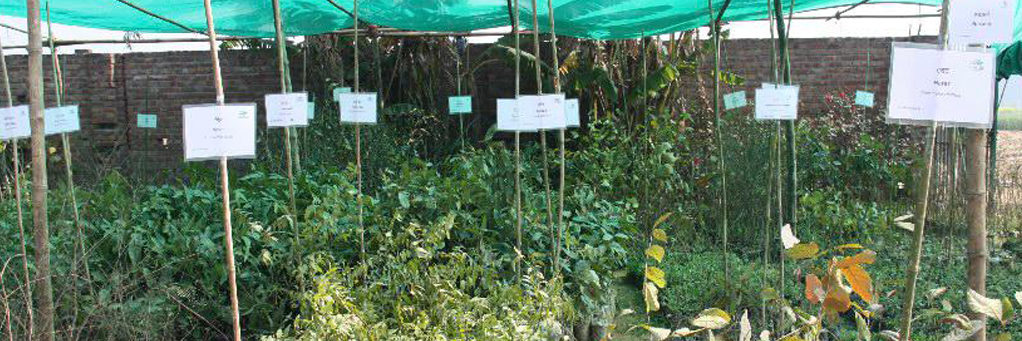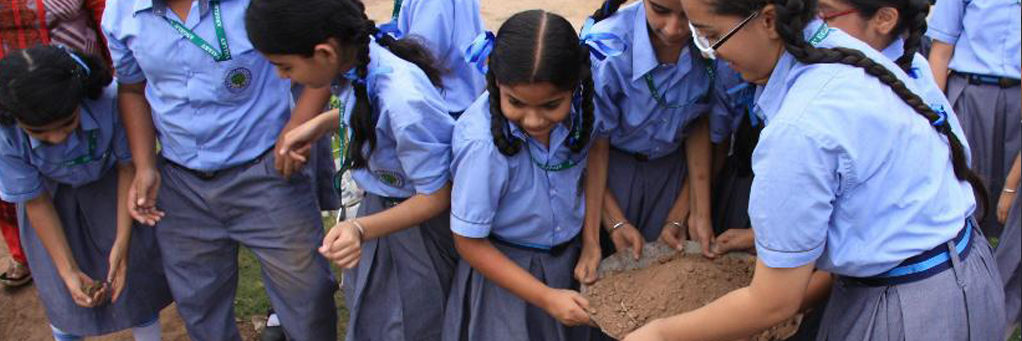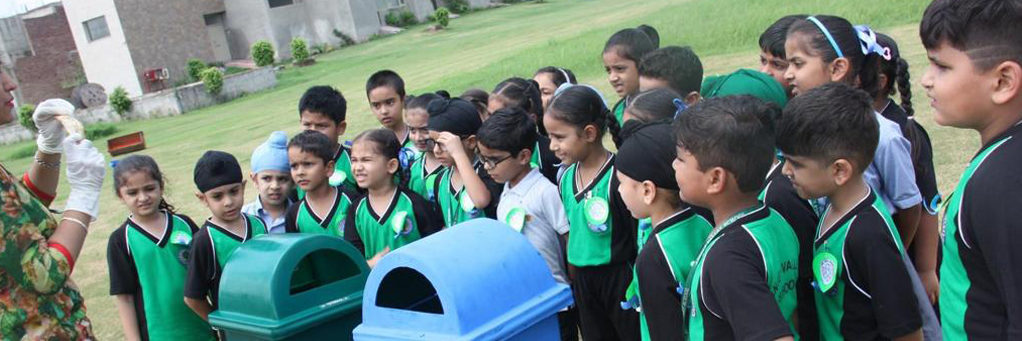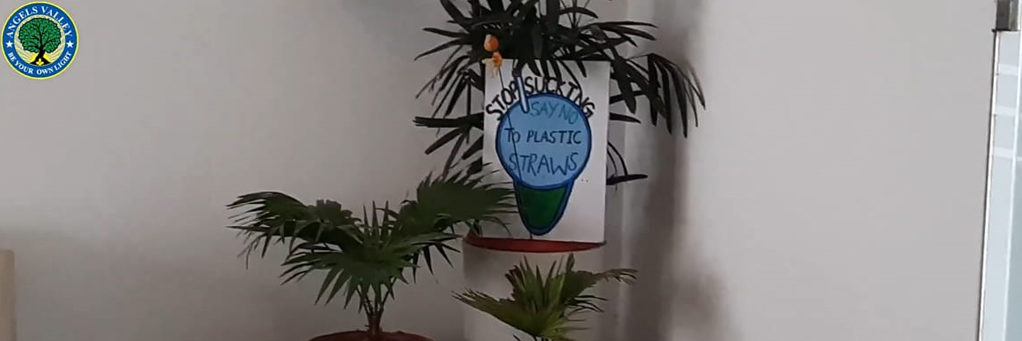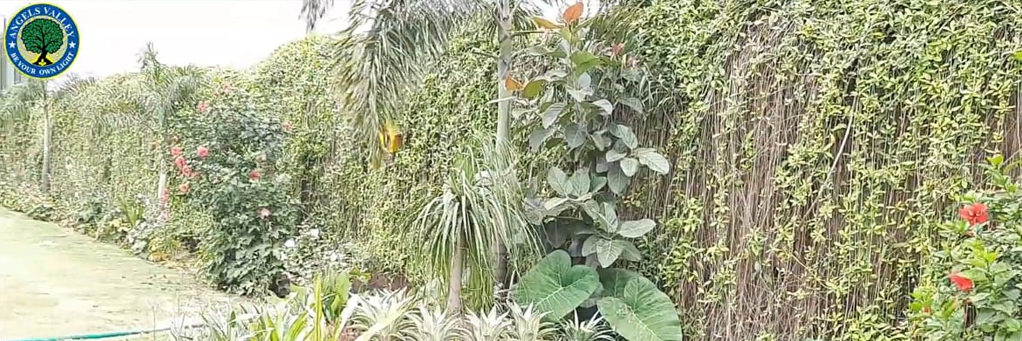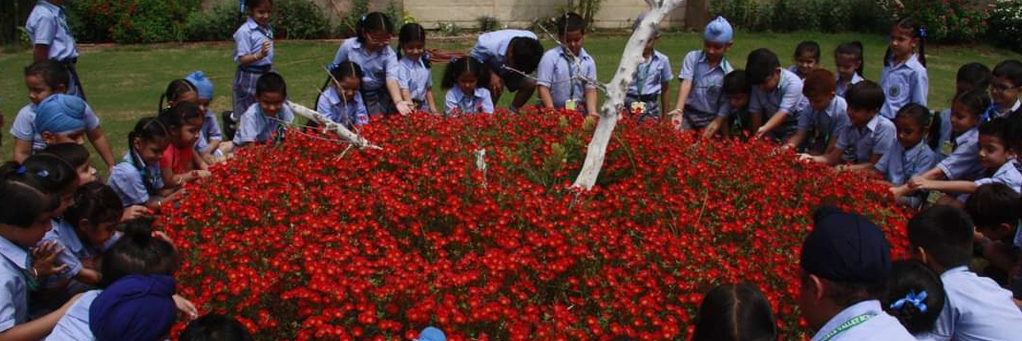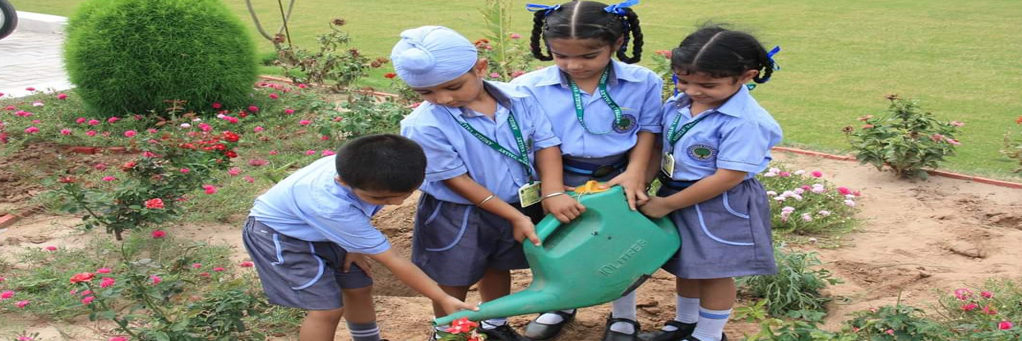Green School Initiatives
An Interview with Dr. Rajwant Singh Founder and President, Eco Sikh
Angels Valley School welcomed and enjoyed the company of one of world's most prolific environmentalists Dr. Rajwant Singh in the campus today. Our passionate Eco Warriors used his visit as an opportunity to know Dr. Singh's achievements, challenges and vision with regard to his mission. Our school campus is home to 11,000 plants of 53 native species planted in collaboration with Eco Sikh, a global environmental movement. It's the largest man made forest of the region. Dr. Singh appreciated the Management for their farsightedness and assured them of his guidance and support to all projects the school wishes to work on in future.
Angels Valley School Takes a Stand Against Single-Use Plastic!🌟
On the eve of Gandhi Jayanti, our students, teachers, and administration came together to ignite change in our city. With a shared passion for a cleaner, greener future, we launched an impactful awareness drive against Single-Use Plastic. 🌍 Our mission is clear: to reduce plastic waste and safeguard our environment. Gandhiji’s message of sustainability and non-violence resonates deeply with us, inspiring us to take action. Together, we can make a difference. 💚 Let's pave the way for a sustainable and plastic-free future. 🌿
AVS is host to the biggest Miyawaki Forest in Punjab 🍃🌳
EcoSikh created the largest Guru Nanak Sacred Forest of Punjab at Angels Valley School, Rajpura. In just 10 months the forest has shown exemplary results; some trees have grown taller than 15 feet and the forest has started to look like a decade-old natural forest. All the 11000 trees of 53 native species, planted in 1.25-acre land, are in perfectly healthy shape and many have started producing beautiful flowers. The Sacred Forest is now home to an abundance of biodiversity, including insects, butterflies, birds, etc. Moreover, the forest has started producing mushrooms which indicate that there is a healthy fungal network beneath the surface.
Sustainable Environmental Practices@AVS
We pledge to do our bit to conserve the ecosystem. Welcome to our "Green Campus" where sustainability is deep- rooted in everything we do.
Let’s learn how to compost our fruit and vegetable waste
Having a compost pile or bin is a great way to learn and work together as a family.
It is the belief of Angelians that it is necessary to replenish the Earth of nutrients and that food waste does not belong in the garbage.
It is a great way to reduce your waste and replenish the Earth to be good stewards of the world we've been given.
Jia Dhawan of Class IX teaches us how to make compost at home for our plants.
Nature is the biggest influencer and gives impetus to all educational pursuits at Angels Valley School.
The school takes pride in being a ‘Green School’. Under this initiative, thoughtful and workable plans are made and implemented to enhance sustainable environmental practices. The school develops environmental empathy and consciousness in children right from the beginning of life by undertaking various Eco-friendly initiatives. The campus is a ‘No Plastic Zone’. The principles of ‘Reduce Reuse, Replenish& Recycle’ are followed religiously.
The school sends all waste paper to the recycling plant. The school ensures disposal of electronic waste strictly according to the guidelines.
Over the years, Angels Valley School has used multiple platforms to awaken the masses to the need of following sustainable environmental practices. The students, staff, parents and the community at large are involved in tree plantation drives carried out from time to time.
The school’s ‘Green Initiatives’ are modeled after the principles of SDGs. The campus is home to hundreds of varieties of trees, plants and shrubs. No part of the school campus is devoid of greenery and no chemical fertilizers are used in school. The campus is a habitat to different types of bird, even rodents and insects which are helpful in maintaining the ecological balance.
‘Ensuring availability and sustainable management of water and sanitization for all’ is the SDG 6. Today, 2.2 billion people lack access to safely managed drinking water, and more than 4.2 billion people lack safely managed sanitation. Climate change is exacerbating the situation, with increasing disasters such as floods and droughts. 80 per cent of wastewater in the world flows back into the ecosystem without being treated or reused, and 70 per cent of the world’s natural wetland extent has been lost, including a significant loss of freshwater species. Hence, conservation of water becomes a necessity for individuals and institutions. In order to coordinate the efforts of UN, AVS has put in place a robust water management system. The system ensures ground water conservation, no water wastage and continued efforts to create awareness in the children. Drip irrigation, sprinklers and underground water storage tanks to store rainwater are some of the steps taken by school to conserve water.
Solid waste management system, water harvesting system, compost pit, herbal garden, green lawns and above all a strong resolution to adhere to the principles of sustainable practices is our chief aim.


